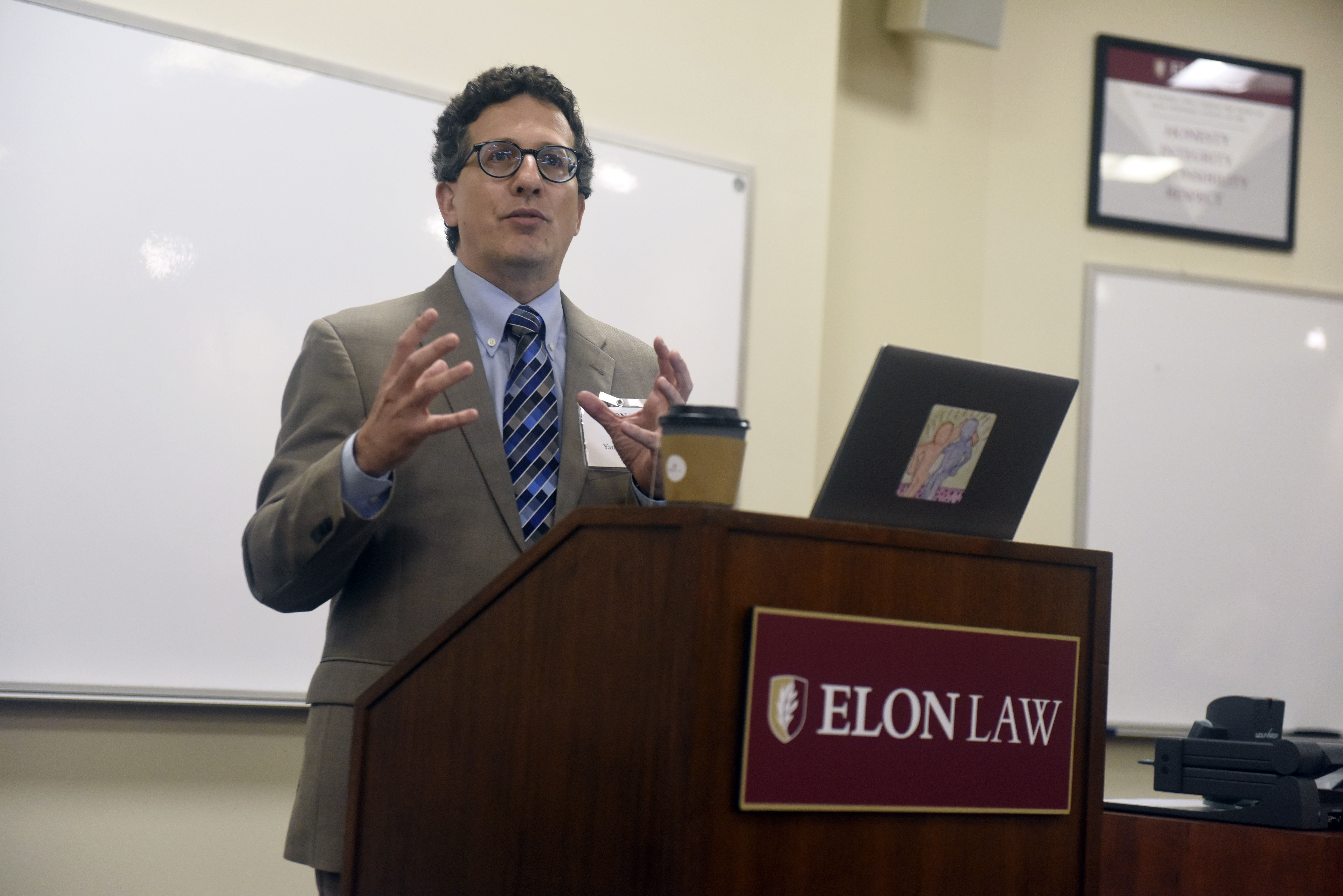Professor Yaniv Heled from Georgia State University College of Law painted a bleak future for Americans in need of affordable medications when he delivered keynote remarks at an Elon Law Review program focused on the intersection of public health and the legal system.
The Drug Price Competition and Patent Term Restoration Act of 1984 made it easier for pharmaceutical companies to produce generic drugs that soon brought down the price of many prescription medications.
But according to one prominent scholar, since then, innovative manufacturing processes for a new classification of drug treatments have stunted the market for generics. Attempts by Congress to solve the problem, he argues, have been largely ineffective.
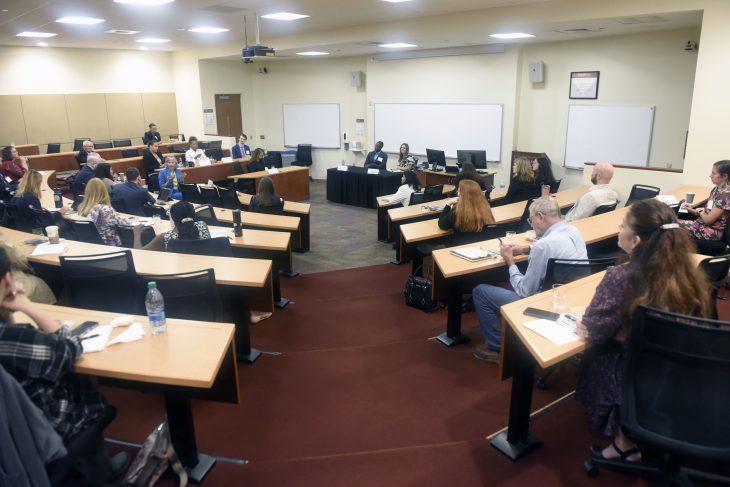
The result? Little or no competition in a pharmaceutical industry where prices for some biologic drugs – treatments that cannot readily be replicated in a lab because they are produced through living systems – cost millions of dollars per dose. It’s a dilemma with no end in sight.
Professor Yaniv Heled, a professor of law of Georgia State University College of Law, visited Elon Law on September 20 to deliver Elon Law’s Jennings Family Lecture in Memoriam to Associate Professor Mike Rich.
His talk, “A Generation Lost: The Regulation of Follow-On Biopharmaceuticals in the United States,” was among the highlights of an annual Elon Law Review symposium attended this year by dozens of attorneys, policy makers, and Elon Law students and faculty.
Heled called on Congress to continue work on the problem, in cooperation with the pharmaceutical industry, and he offered a warning for pharmaceutical companies themselves: record profits from drugs with no generic equivalents aren’t sustainable.
He said it’s in everyone’s interest – patients, payors, and the industry itself – to foster competition in the drug market.
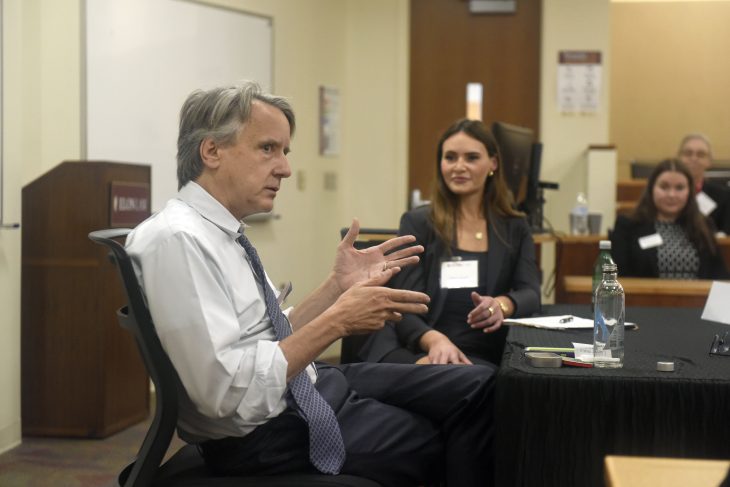
“The current situation is one where there are only losers,” Heled said. “The current trend in biologics prices is unsustainable. Payors simply cannot keep up with increasing expenditures. The increase in expenditures on biologics will ultimately, inevitably lead to one form or another of government price controls over pharmaceuticals, as is done in every country in the world except the United States.
“I believe we are already seeing the beginning of this movement toward price controls in the mandatory price negotiations framework that was passed as part of the Inflation Reduction Act of 2022. Perhaps even more tellingly, we can see it in explicit promises made by candidates for office at all levels to curb pharmaceutical drug prices. Indeed, in many ways pharmaceutical companies are fast on their way to becoming victims of their own immense success in maintaining their profit margins so high, for so long.”
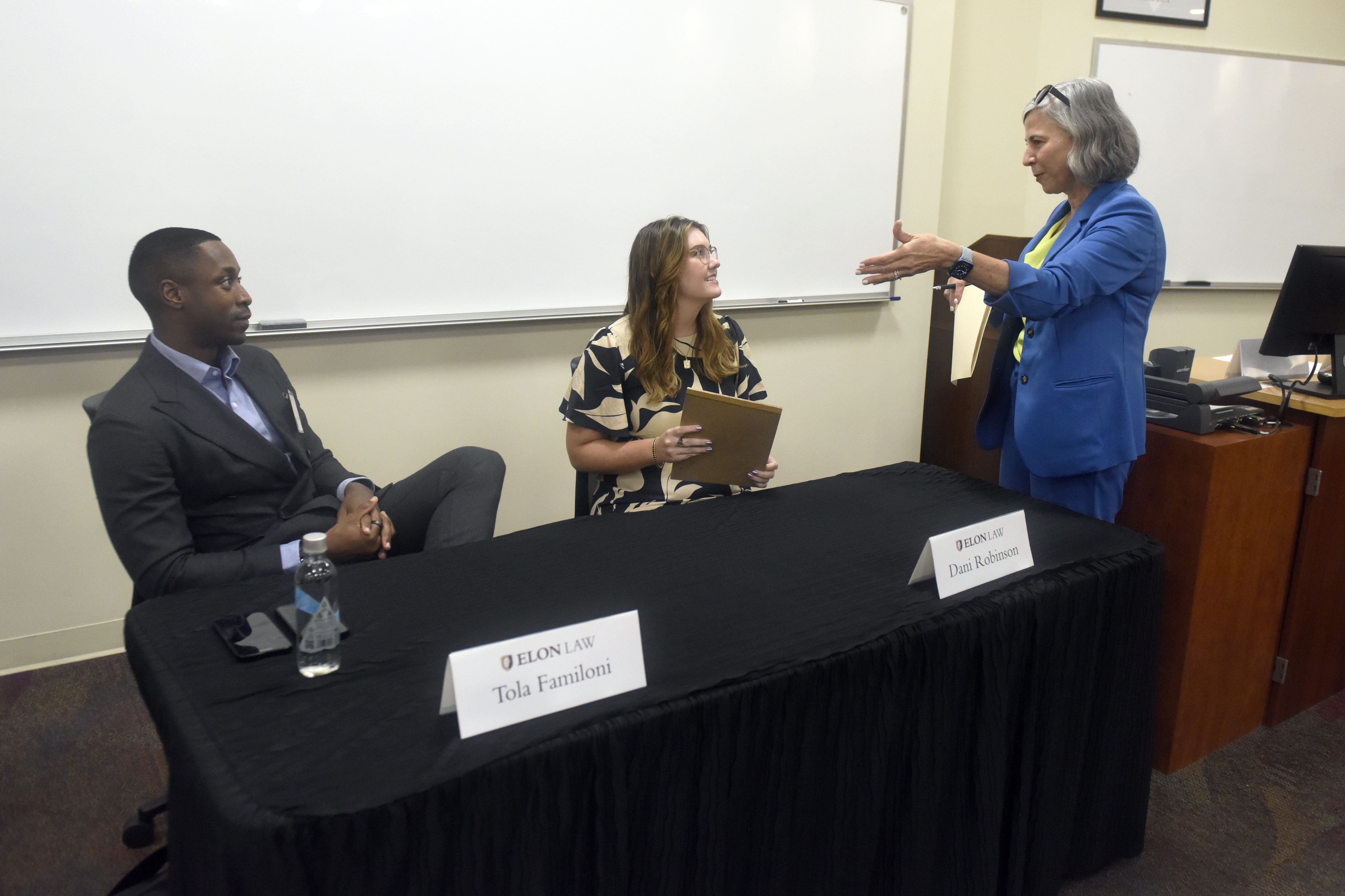
A summary of Heled’s remarks will appear in the next issue of the Elon Law Review, tentatively scheduled for publication this winter.
With a 2024 theme of “The Doc Is In: Prescribing Treatment for the Health Crises Through the Legal System,” the Elon Law Review symposium featured legal scholars, practicing attorneys, and policymakers whose work is directly tied to legal debates involving questions of public health policies.
Elon Law Dean Zak Kramer praised student leaders of the Elon Law Review for their work to organize the program. In his welcoming remarks, Kramer also instructed attorneys to converse with the students they would soon meet. “Talk about your career, where you are today, mistakes along the way, successes along the way. Give them advice. Have a cup of coffee with them!”
He thanked attendees for their interest in visiting the School of Law. “We want you here as often as possible,” Kramer said. “A successful Elon Law is a deeply connected Elon Law.”
Panels & Presenters
“Hospitals, Pharmacies, and Monopolies: Controlling the Corporate Practice of Medicine” (Moderated by Elon Law graduate Jennifer Martinez L’23)
- Olivia Smith and John Hughes of Wallace and Graham, P.A.
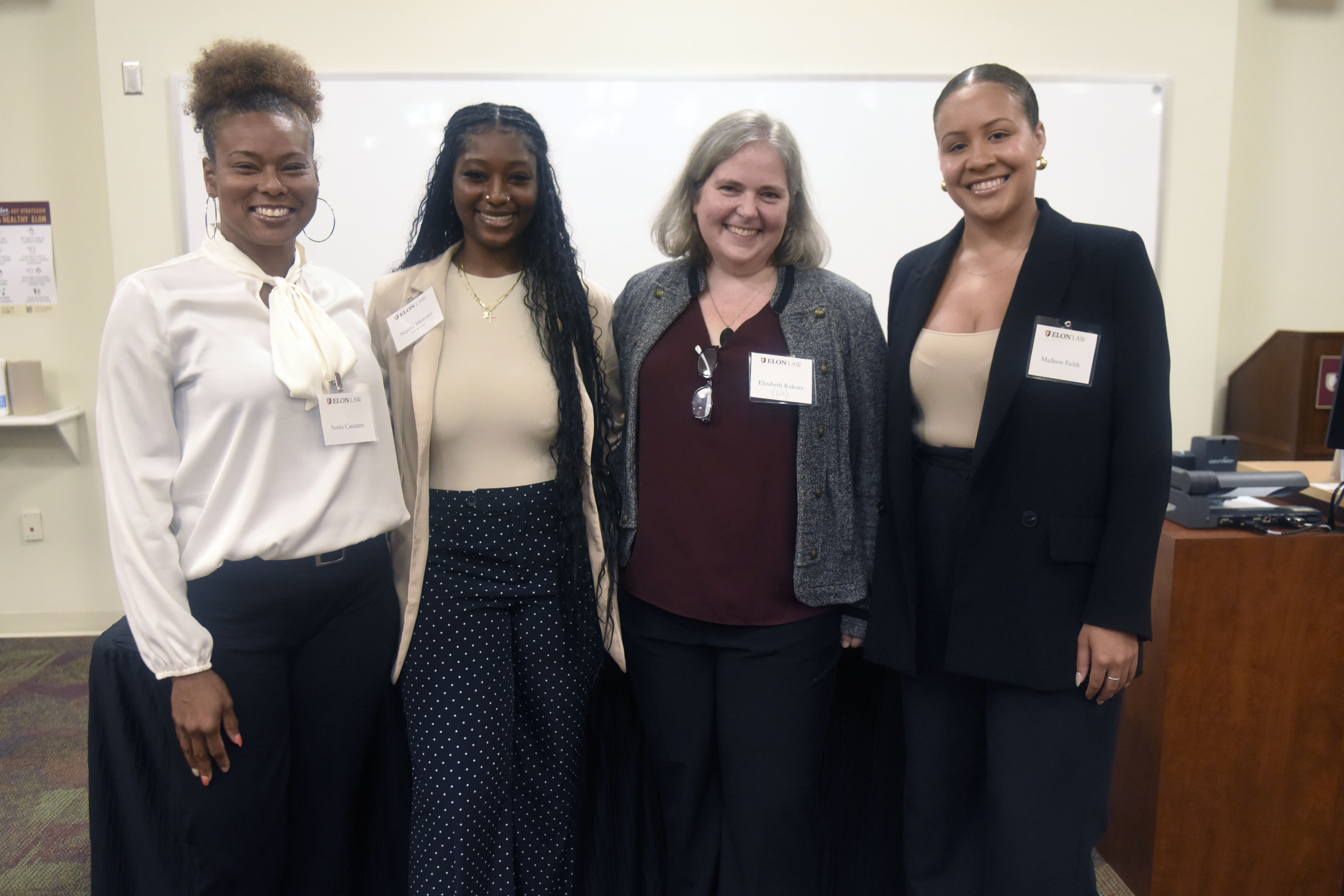
“Exploring Health Law: Advocacy and Policy Panel” (Moderated by Elon Law student Naisha Mercury L’24)
- Sonia Canzater, Adjunct Professor of Law at the Georgetown University Law Center and Associate Director of the Infectious Diseases Initiative at the O’Neill Institute
- Madison Fields L’21, Legal Advisor at the Global Health Advocacy Incubator’s Overdose Prevention Initiative
- Elizabeth Kukura, Associate Professor at Drexel University Thomas R. Kline School of Law
“Health Law and Litigation: Practical Insights Panel” (Moderated by Professor Catherine Dunham)
- Tola Familoni L’17, Attorney at Motley Rice, LLC
- Danielle Robertson, Assistant Attorney General, South Carolina Attorney General’s Office, Consumer Protection & Antitrust Section
Reflections from the 2024 Symposium Editors
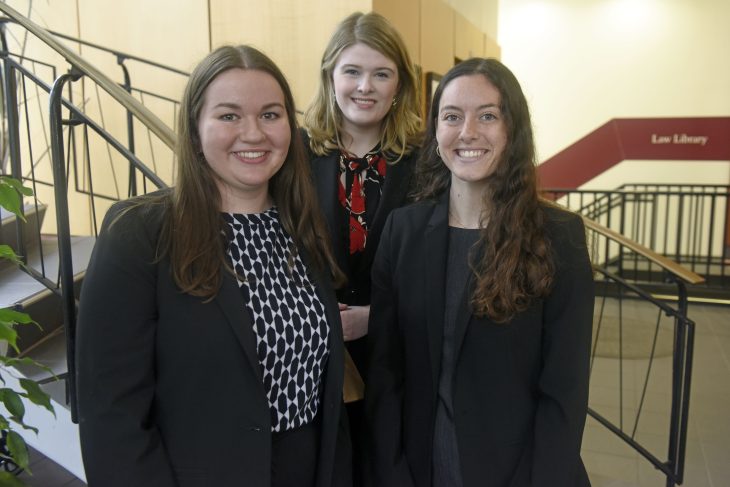
“It was truly rewarding to see the symposium unfold and witness the dynamic exchanges between speakers and participants. The depth of expertise and passion shared throughout the sessions created an enriching atmosphere, highlighting the urgent need for innovative legal approaches to address health crises. This year’s theme was particularly timely, given the ongoing health crises that have exposed systemic vulnerabilities in our healthcare and legal frameworks. We are fortunate to have assembled a diverse group of scholars and practitioners who shared their insights on the multifaceted relationship between law and health. From examining health equity and access to justice to exploring innovative legal strategies for tackling emerging public health challenges, our symposium fostered rich dialogues that we hope will inspire actionable change. I’m excited to see how the insights gained will influence future research and initiatives in this crucial area.” – Rebecca Iyoob L’24, Chief Symposium Editor
“Seeing ‘The Doc Is In’ come to life after months of preparation was one of the most meaningful experiences I have had at Elon Law. Public health touches each person and has become a focal point of discussion in all areas of life, law, and politics over the last decade. The energy at the symposium was vibrant and many attendees were eager to listen and discuss the ever-evolving issues of public health, particularly, healthcare costs, transparency, and availability. My hope is that each attendee left the symposium with new-found or reinvigorated interest in advocating in the area of health law and pursuing better public health policies for all.” – Macaylee Anderson L’24, Symposium Editor
“Being a symposium editor has been a very rewarding experience. I want to thank our incredible panelists for providing their expertise and insight on a topic that calls for adaption and progress in the law due to the evolving world of public health. After the symposium concluded, I loved seeing the public health discussion continue in the commons and the networking that ensued. I appreciate the large number of attendees who took the time to personally thank Rebecca, Macaylee, and I for putting together the symposium. Many were excited to visit our law school for the first time and the alums were happy to be back where their legal careers started.” – Lauren Smith L’24, Symposium Editor



